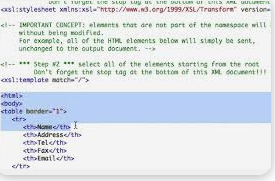A Forex broker is a pivotal entity in the world of currency trading, acting as an intermediary between retail traders and the foreign exchange market. With the forex market being one of the most liquid and largest financial markets globally, the role of a forex broker is indispensable. They provide platforms for executing trades, access to market research, educational resources, and various trading tools. Choosing the right forex broker can significantly impact a trader’s success, making it essential to understand what forex brokers do, how they operate, and what features to look for when selecting one.
What is a Forex Broker? A Forex broker is a financial services company that offers traders access to a platform for buying and selling foreign currencies. They act as an intermediary, facilitating transactions between buyers and sellers in the forex market. Forex brokers provide traders with access to various trading platforms, such as MetaTrader 4 (MT4) and MetaTrader 5 (MT5), which offer tools for technical and fundamental analysis, automated trading systems, and various other features to enhance the trading experience.
How Do Forex Brokers Work?
Forex brokers operate by providing a platform that connects traders with the interbank system, which is a global network of banks and financial institutions trading currencies. Brokers offer various trading platforms, such as MetaTrader 4 (MT4) and MetaTrader 5 (MT5), which provide tools for technical analysis, automated trading, and order execution. Traders can use these platforms to place buy and sell orders for currency pairs, which the broker then processes through their liquidity providers.
One of the primary functions of a forex broker is to facilitate the execution of trades. They do this by aggregating prices from multiple liquidity providers to offer the best available bid and ask prices to their clients. When a trader places an order, the broker either matches it with an opposing order from another client or passes it on to a liquidity provider. This process ensures that trades are executed quickly and at competitive prices. Additionally, brokers may offer leverage, allowing traders to control larger positions with a smaller amount of capital, which can amplify both profits and losses.
Forex brokers also earn money through spreads and commissions. The spread is the difference between the bid and ask prices of a currency pair, which the broker keeps as profit. Some brokers charge a commission on each trade instead of or in addition to the spread. Furthermore, brokers may offer various account types with different fee structures and benefits, catering to both retail and institutional traders. Understanding these mechanisms is crucial for traders to make informed decisions and optimize their trading strategies.
What are the Key Features to Look for in a Forex Broker?
When choosing a forex broker, several key features must be considered to ensure a positive trading experience. One of the most important factors is regulation. A regulated broker operates under strict financial standards and oversight from reputable regulatory bodies such as the Financial Conduct Authority (FCA) in the UK, the Commodity Futures Trading Commission (CFTC) in the US, or the Australian Securities and Investments Commission (ASIC). Regulation helps protect traders from fraudulent activities and ensures the broker adheres to fair trading practices.
Another critical feature to look for is the trading platform offered by the broker. A good trading platform should be user-friendly, reliable, and equipped with advanced trading tools and features. Popular platforms like MetaTrader 4 (MT4) and MetaTrader 5 (MT5) provide a comprehensive suite of tools for technical analysis, charting, and automated trading. Additionally, some brokers develop proprietary platforms tailored to specific trading needs, offering unique features and customization options. It’s essential to test the platform through a demo account to ensure it meets your trading requirements.
Customer support and educational resources are also vital features to consider. Effective customer support can help resolve issues quickly and provide assistance when needed. Look for brokers that offer multiple support channels, such as live chat, email, and phone support, and ensure they provide support during the hours you plan to trade. Educational resources, including webinars, tutorials, articles, and market analysis, can help traders improve their skills and make informed trading decisions. Brokers that invest in educating their clients often have a better reputation and foster a more successful trading community.
How to Choose the Best Forex Broker for Beginners?
Choosing the best forex broker for beginners involves considering several factors that cater specifically to the needs of novice traders. One of the primary considerations is the availability of educational resources. Beginners should look for brokers that offer comprehensive educational materials, such as tutorials, webinars, eBooks, and articles. These resources can help new traders understand the basics of forex trading, develop trading strategies, and learn how to use trading platforms effectively.
Another important factor is the demo account feature. A demo account allows beginners to practice trading with virtual money in a risk-free environment. This feature helps new traders familiarize themselves with the trading platform, test their trading strategies, and gain confidence before investing real money. The best brokers for beginners offer demo accounts that closely simulate live trading conditions, providing a realistic trading experience.
Lastly, beginners should consider the broker’s customer support and ease of use. A broker with responsive and helpful customer support can assist with any issues or questions that may arise during the learning process. Additionally, an intuitive and user-friendly trading platform is crucial for beginners to navigate the forex market without unnecessary complications. Brokers that offer features such as educational tools, demo accounts, and excellent customer support are well-suited for those new to forex trading.
What are the Top Forex Trading Platforms Offered by Brokers?
Selecting the right trading platform is crucial for a successful trading experience. Here are some of the most popular and feature-rich forex trading platforms offered by top brokers:
MetaTrader 4 (MT4) and MetaTrader 5 (MT5) MetaTrader 4 and MetaTrader 5 are among the most widely used platforms in the forex industry. MT4 is known for its user-friendly interface and powerful charting tools, making it ideal for both beginners and experienced traders. It supports automated trading through Expert Advisors (EAs), allowing traders to create custom indicators and strategies. MT5, the successor to MT4, offers additional features such as more timeframes, an integrated economic calendar, and improved order management capabilities. Both platforms are available on desktop, web, and mobile devices, ensuring traders can access their accounts from anywhere.
TradingView TradingView is a popular charting and social trading platform that has gained traction among forex traders for its comprehensive range of technical analysis tools and user-friendly interface. It offers real-time data, advanced charting features, and a wide array of indicators and drawing tools. TradingView also supports social trading, where traders can share and discuss trade ideas with the community. This platform is particularly valued for its accessibility on both desktop and mobile devices, making it convenient for traders on the go.
cTrader Developed by Spotware Systems, cTrader is a robust platform designed for high-frequency traders and those who prefer algorithmic trading. It offers premium charting tools, customizable interfaces, and features such as market depth and one-click trading. cTrader is also known for its efficient order execution and transparency, providing traders with detailed information about market conditions and liquidity. Additionally, cTrader supports automated trading through cAlgo, allowing traders to create and optimize their own trading algorithms.
How Do Forex Brokers Make Money?
Forex brokers primarily make money through spreads, commissions, and additional fees. Understanding these mechanisms is essential for traders to manage their trading costs effectively.
Spreads The spread is the difference between the bid (buy) and ask (sell) prices of a currency pair. This difference represents the broker’s profit for facilitating the trade. Spreads can be either fixed or variable. Fixed spreads remain constant regardless of market conditions, while variable spreads fluctuate based on market volatility and liquidity. Brokers that offer lower spreads are generally more attractive to traders, as lower trading costs can significantly impact profitability over time.
Commissions Some brokers charge a commission per trade in addition to or instead of spreads. This commission is typically a small percentage of the trade’s value or a fixed amount per lot traded. Commission-based pricing is more common among brokers that offer ECN (Electronic Communication Network) or STP (Straight Through Processing) accounts, where trades are executed directly in the interbank market without dealer intervention. These accounts often feature tighter spreads but charge commissions to compensate for the reduced spread.
Additional Fees Forex brokers may also earn money through various additional fees, such as overnight financing charges (swap rates), inactivity fees, and withdrawal fees. Swap rates are applied to positions held overnight and can either be positive or negative, depending on the interest rate differential between the two currencies in the pair. Inactivity fees are charged if an account remains dormant for a certain period, while withdrawal fees apply to transferring funds from the trading account to a bank account or payment processor .
What are the Different Types of Forex Brokers?
Forex brokers can be categorized based on their execution models and the type of services they offer. Understanding these types can help traders choose the broker that best fits their trading style and needs.
Market Makers Market makers, also known as dealing desk brokers, create their own liquidity by taking the opposite side of their clients’ trades. This means that when a trader buys a currency pair, the broker sells it, and vice versa. Market makers profit from the spread and may also take advantage of the bid-ask price differences. While market makers can offer lower spreads and guaranteed liquidity, there is a potential conflict of interest as they are counterparty to the trades.
ECN (Electronic Communication Network) Brokers ECN brokers connect traders directly to the interbank market, allowing them to trade with other market participants, including banks, hedge funds, and other traders. ECN brokers charge a commission on each trade and provide access to tighter spreads, as they aggregate quotes from multiple liquidity providers. This model is preferred by traders seeking transparency and lower trading costs, especially those using scalping or high-frequency trading strategies.
STP (Straight Through Processing) Brokers STP brokers route their clients’ orders directly to liquidity providers without a dealing desk. These brokers earn money from a markup on the spread or a commission per trade. STP brokers offer variable spreads that reflect real market conditions and provide faster execution times compared to market makers. This type of broker is suitable for traders who want a balance between low spreads and direct market access.
What is the Importance of Regulation in Forex Trading?
Regulation in forex trading is crucial for maintaining a safe and transparent trading environment. It serves several key purposes, including protecting traders from fraudulent activities, ensuring the integrity of the financial markets, and promoting fair trading practices.
Regulated forex brokers are required to adhere to strict guidelines set by regulatory bodies such as the Financial Conduct Authority (FCA) in the UK, the Commodity Futures Trading Commission (CFTC) in the US, and the Australian Securities and Investments Commission (ASIC). These regulations ensure that brokers maintain segregated accounts to protect clients’ funds, undergo regular audits, and provide transparent trading conditions. This level of oversight helps prevent fraud and ensures that brokers operate ethically and responsibly .
Moreover, regulation promotes market stability by enforcing minimum capital requirements for brokers and ensuring they have adequate financial resources to meet their obligations. This reduces the risk of broker insolvency and protects traders from losing their funds if a broker fails. Additionally, many regulatory bodies offer compensation schemes that provide an extra layer of protection for traders in the event of a broker’s financial failure.
Which Forex Brokers are Regulated by the CFTC and NFA?
In the United States, forex brokers must be regulated by the Commodity Futures Trading Commission (CFTC) and the National Futures Association (NFA). These regulatory bodies ensure that brokers adhere to strict standards of conduct and financial stability.
Some of the top forex brokers regulated by the CFTC and NFA include:
- FOREX.com: Known for its robust trading platforms and extensive market research tools, FOREX.com is a popular choice among US traders. It offers a variety of trading platforms, including MetaTrader 4 (MT4) and its proprietary platform, with competitive spreads and reliable execution.
- OANDA: OANDA is renowned for its user-friendly platform and comprehensive research tools. It provides access to a wide range of currency pairs and offers competitive spreads, making it a favorite among both novice and experienced traders.
- Interactive Brokers: Interactive Brokers offers a professional trading environment with advanced trading tools and access to global financial markets. Its competitive pricing and high-quality research make it a top choice for serious traders.
These brokers are required to follow strict regulatory guidelines, ensuring that they provide a safe and transparent trading environment for their clients.
How to Verify a Forex Broker’s Regulatory Status?
Verifying a forex broker’s regulatory status is essential to ensure that you are dealing with a legitimate and trustworthy firm. Here are the steps to verify a broker’s regulatory status:
- Check the Broker’s Website: Reputable brokers will prominently display their regulatory status on their website, including the name of the regulatory body and the broker’s registration number.
- Visit the Regulatory Body’s Website: Go to the official website of the relevant regulatory body, such as the FCA, CFTC, or ASIC. Most regulatory bodies have an online register where you can search for the broker using their name or registration number.
- Verify the Information: Enter the broker’s details into the regulatory body’s online register to confirm their regulatory status. If the broker is listed, their claims of being regulated are legitimate. If not, consider avoiding the broker as they may not be trustworthy.
What are the Pros and Cons of Using MetaTrader Platforms?
MetaTrader 4 (MT4) and MetaTrader 5 (MT5) are two of the most popular trading platforms in the forex market, each with its own set of advantages and disadvantages.
Pros of MetaTrader Platforms:
1. User-Friendly Interface: Both MT4 and MT5 are known for their intuitive and user-friendly interfaces, making them accessible to traders of all levels. The platforms offer a well-organized layout with customizable options, allowing users to tailor the interface to their preferences.
2. Advanced Charting Tools: MT4 and MT5 provide robust charting capabilities with a wide range of technical indicators and drawing tools. MT5, in particular, offers more advanced features, including additional timeframes, indicators, and analytical objects, enhancing the trader’s ability to conduct comprehensive technical analysis .
3. Automated Trading: Both platforms support automated trading through Expert Advisors (EAs). Traders can develop and implement their own trading strategies using the platforms’ built-in programming languages (MQL4 for MT4 and MQL5 for MT5). This allows for the creation of automated trading systems that can execute trades based on predefined rules and conditions.
4. Wide Market Access: MT4 and MT5 offer access to various financial markets, including forex, commodities, indices, and cryptocurrencies. This wide range of instruments allows traders to diversify their portfolios and take advantage of different trading opportunities.
5. Large Community and Support: The MetaTrader community is extensive, with numerous online forums and resources where traders can share ideas and strategies. This support network is beneficial for both novice and experienced traders looking to enhance their trading knowledge and skills.
Cons of MetaTrader Platforms:
1. Limited Order Types: While both platforms support the most common order types, such as market and limit orders, they lack some advanced order types found on other platforms. For example, MT4 does not support one-cancels-the-other (OCO) orders, which might be a limitation for traders who require more sophisticated order management.
2. Outdated Technology in MT4: MT4, despite its popularity, uses older technology, which can result in slower performance compared to newer trading platforms. This might be a disadvantage for traders who prioritize speed and efficiency in trade execution.
3. Limited Mobile Functionality: Although both platforms offer mobile applications, the functionality of the mobile versions is not as comprehensive as the desktop versions. This can be a drawback for traders who need full platform capabilities while trading on the go.
4. Transition to MT5: Some traders face challenges when transitioning from MT4 to MT5 due to differences in the programming languages (MQL4 vs. MQL5). This can require rewriting existing automated trading scripts and EAs, which may be a significant task for those with extensive custom setups on MT4.
By weighing these pros and cons, traders can make an informed decision on whether MT4 or MT5 is the right platform for their trading needs.
How Do Leverage and Margin Work in Forex Trading?
Leverage and margin are fundamental concepts in forex trading that can significantly amplify both gains and losses. Understanding how they work is essential for managing risk and making informed trading decisions.
Leverage: Leverage allows traders to control a larger position size with a smaller amount of capital. It is expressed as a ratio, such as 50:1 or 100:1, indicating how much larger the trader’s position is compared to their actual investment. For example, with 100:1 leverage, a trader can control a $100,000 position with just $1,000 of their own capital. While leverage can enhance potential profits, it also increases the risk of significant losses if the market moves against the trader.
Margin: Margin is the amount of money required to open and maintain a leveraged position. It acts as a security deposit that the broker holds while the trade is open. There are two types of margin to consider: initial margin and maintenance margin. The initial margin is the amount needed to open a position, while the maintenance margin is the minimum balance required to keep the position open. If the account balance falls below the maintenance margin level, the broker may issue a margin call, requiring the trader to deposit additional funds to avoid the position being liquidated.
Proper use of leverage and margin involves careful risk management. Traders should use leverage conservatively, keeping in mind that while it can amplify gains, it can equally amplify losses. It’s crucial to set stop-loss orders and regularly monitor positions to manage the potential risks associated with leveraged trading.
What are the Best Forex Brokers for Low Fees?
Choosing a forex broker with low fees is essential for maximizing trading profits. Here are some of the top brokers known for their competitive fee structures:
1. Pepperstone: Pepperstone is renowned for its low spreads and competitive commission rates. It offers various account types, including the Razor account, which features spreads starting from 0.0 pips and a small commission per trade. This makes Pepperstone an excellent choice for traders looking to minimize their trading costs.
2. IC Markets: IC Markets is another broker that offers low spreads, particularly for its Raw Spread account. Spreads on major currency pairs can start as low as 0.0 pips, with a small commission per lot traded. IC Markets is also known for its fast order execution and deep liquidity, making it ideal for scalpers and high-frequency traders.
3. FXTM (ForexTime): FXTM offers competitive spreads and low commission rates across its various account types. The broker is known for its transparency in fee structures and provides detailed information about the costs associated with each account. FXTM’s tight spreads and low commissions make it a popular choice among cost-conscious traders.
4. CMC Markets: CMC Markets provides a comprehensive fee structure with competitive spreads and no commissions on its standard account. The broker also offers a range of educational resources and tools to help traders manage their costs effectively. CMC Markets’ commitment to low fees and high-quality service makes it a strong contender for traders seeking affordable trading options.
Which Forex Brokers Offer the Best Educational Resources?
When selecting a forex broker, educational resources are an important factor to consider, especially for beginners. Here are some top brokers known for their comprehensive educational offerings:
1. IG Markets: IG Markets is highly regarded for its extensive educational resources, including video tutorials, webinars, trading guides, and a dedicated forex trading course. They also offer the IG Academy app, which provides structured lessons and interactive exercises tailored for both beginners and advanced traders. IG’s DailyFX platform offers real-time market analysis, trading signals, and educational content, making it a valuable resource for continuous learning.
2. XM: XM prioritizes trader education with a wide range of resources, including live webinars, educational videos, trading seminars, and a comprehensive forex education center. Their materials cover various topics, from forex basics to advanced technical and fundamental analysis. XM also provides a demo account with virtual funds, allowing traders to practice their strategies risk-free.
3. eToro: eToro offers a unique blend of social trading and educational resources. Their Learning Academy features video tutorials, articles, and weekly webinars. The platform’s social trading aspect allows users to copy the trades of experienced traders, providing a hands-on learning experience. eToro also produces educational content through podcasts and videos, catering to modern learning preferences.
What Tools and Resources Do Top Forex Brokers Provide for Market Analysis?
Top forex brokers provide a variety of tools and resources to assist traders with market analysis, ensuring they have the necessary information to make informed trading decisions.
1. Trading Platforms with Advanced Tools: Brokers like IG and CMC Markets offer trading platforms equipped with advanced charting tools, technical indicators, and customizable interfaces. These platforms, such as MetaTrader 4 (MT4) and MetaTrader 5 (MT5), provide traders with the ability to perform in-depth technical analysis and backtest trading strategies .
2. Research and Analysis: Many brokers provide access to comprehensive research and analysis. For example, IG’s DailyFX platform offers market news, analysis, and trading signals. Similarly, CMC Markets delivers high-quality research articles, video updates, and podcasts that cover a wide range of market topic.
3. Economic Calendars: Brokers like Forex.com and XM provide detailed economic calendars that highlight important economic events and data releases. These calendars help traders stay informed about market-moving events and make timely trading decisions based on anticipated market reactions.
How to Set Up a Demo Account with a Forex Broker?
Setting up a demo account with a forex broker is a straightforward process that allows traders to practice trading without risking real money. Here’s how to do it:
1. Choose a Broker: Select a broker that offers a demo account. Popular brokers with robust demo account offerings include IG, Forex.com, and XM. These brokers provide virtual funds and access to their trading platforms, allowing you to simulate real trading conditions.
2. Register for a Demo Account: Visit the broker’s website and navigate to the demo account registration page. You will typically need to provide basic information such as your name, email address, and phone number. Some brokers might require additional details to complete the registration process.
3. Download the Trading Platform: Once registered, you may need to download the broker’s trading platform (e.g., MT4, MT5, or the broker’s proprietary platform) or use their web-based platform. Instructions for downloading and installing the platform are usually provided during the registration process.
4. Start Trading: After logging into the demo account, you will have access to virtual funds and can start placing trades. Use this opportunity to explore the platform’s features, test different trading strategies, and familiarize yourself with the tools and resources available.
Conclusion
Choosing the right forex broker is a critical step in ensuring a successful trading journey. Through a detailed analysis of the best forex brokers and platforms, we’ve highlighted essential factors and features that traders should consider.
Forex Brokers and Platforms: Understanding how forex brokers work and what they offer is fundamental. Brokers provide the trading platforms necessary for executing trades, such as MetaTrader 4 (MT4) and MetaTrader 5 (MT5), both of which are known for their robust charting tools and automated trading capabilities. However, traders must also be aware of the differences between these platforms, especially regarding advanced features and technology updates.
Regulation and Safety: Regulation plays a vital role in protecting traders and ensuring market integrity. Regulated brokers, such as those overseen by the CFTC and NFA, adhere to strict financial standards, providing an additional layer of security for traders. Verifying a broker’s regulatory status can prevent potential fraud and ensure that traders are dealing with reputable firms (Investing.com) (Forex).
Educational Resources and Tools: Educational resources are crucial for both beginners and experienced traders. Brokers like IG, XM, and eToro offer comprehensive educational materials, including tutorials, webinars, and trading guides. These resources help traders improve their skills and stay informed about market developments. Additionally, brokers provide various tools for market analysis, such as advanced charting tools, economic calendars, and research reports, to aid in making informed trading decisions.
Demo Accounts: Setting up a demo account with a forex broker is an excellent way for traders to practice without risking real money. Most reputable brokers offer demo accounts that simulate real trading conditions, allowing traders to test strategies and become familiar with the trading platform.
In conclusion, selecting the best forex broker involves considering various factors, including regulatory status, educational resources, trading platforms, and the availability of demo accounts. By carefully evaluating these aspects, traders can choose a broker that aligns with their trading needs and goals, ultimately enhancing their trading experience and potential for success.
LinkedIn Description
🌐 Unlock Your Forex Trading Potential with the Right Broker! 🌐
Choosing the right forex broker is crucial for your trading success. Explore our comprehensive guide on everything you need to know about forex brokers, from understanding their role and importance of regulation to leveraging educational resources and demo accounts. 📊📈
Dive deep into:
- The mechanics of how forex brokers operate
- Key features to look for in a broker
- Top trading platforms like MetaTrader 4 & 5
- Insights into regulatory bodies like CFTC and NFA
- The best brokers for beginners and advanced traders
Maximize your trading strategy with the right knowledge and tools! 💡
#ForexTrading #Investment #TradingPlatform #FinancialFreedom #ForexEducation #TradingTips #ForexMarket
Facebook Description
🚀 Take Your Forex Trading to the Next Level! 🚀
Finding the right forex broker can be the game-changer for your trading journey. Our latest blog post covers everything you need to know to make an informed choice, from how brokers work to the best educational resources they offer. 🏦📚
Topics covered: ✔️ How forex brokers operate and make money ✔️ Key features of top trading platforms like MetaTrader 4 & 5 ✔️ The importance of regulation and how to verify a broker’s status ✔️ Best brokers for beginners with top-notch educational tools
Empower your trading strategies with comprehensive insights and practical tips! 💪
#Forex #ForexTrading #FinancialLiteracy #TradingTips #Investment #ForexEducation
Instagram Description
🌟 Master Forex Trading with the Right Broker! 🌟
Choosing the perfect forex broker is essential for success in the forex market. Our latest blog post is your ultimate guide to understanding brokers, from their operational mechanics to top educational resources. 📉📊
Highlights: ✨ How forex brokers work and make money ✨ Top features of MetaTrader 4 & 5 platforms ✨ Importance of regulation (CFTC, NFA) ✨ Best brokers for beginners and their educational resources
Get the knowledge you need to trade confidently! 🌐
#Forex #ForexTrading #TradingPlatform #FinancialEducation #InvestSmart #TradingTips #ForexMarket












